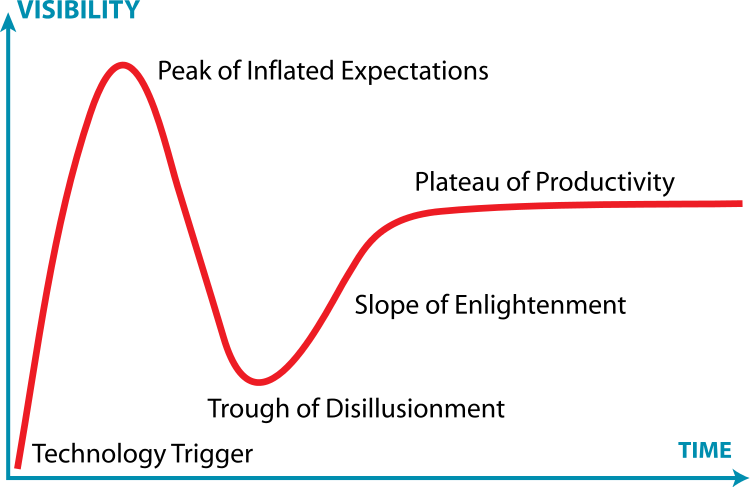It's the middle of July and we're in week 3 of Pokemon Go craziness. I've been thoroughly enjoying it myself. In the app, I've been leveling up and raising my highest CP Pokemon. In the real world, I've been a part of the massive crowds by General William Sherman's statue (at 59th and 5th) who stay up as late as phone batteries will allow.
But I think perhaps the most joy comes from watching Wall Street desperately trying to catch up and understand the phenomenon of virtual and augmented reality. The enthusiasm is a bit stilted and awkward, like a kid flailing around excitedly on Christmas morning. This past week alone, there were more than a dozen calls, teach-ins, group lunches, and analyst notes mentioning VR/AR.
I was there for this in person!
Wall Street Hype
As is often the case, Wall Street investors are perhaps the only people frothier about a hype cycle than the early adopters and fast followers. Pokemon Go makes for a great case study: investors have a superficial understanding of the game and the social phenomenon. For example, much of the hype on Wall Street revolves around the game's use of augmented reality. Investor calls and teach-ins declare "AR is here!" and ask "How does this change the world?"
Despite investor excitement, the bulk of the game's functionality relies not on AR but rather on cleverly using a Google/Niantic points of interest dataset. The AR component of the game somewhat contributes to its virality, and helps to cement the idea that the game is about interacting with the physical world, but the core gameplay is more fun with AR off. The Pokemon IP, the core game loop, and the serendipitous social interactions are what drive stickiness and sustainable monetization. AR doesn't play a role in several core game activities, such as battles and viewing/managing pokemon, only capturing. And AR likely won't play a role in future mechanics meant to drive engagement, like trading and battling outside of gyms.
Not your average hype cycle
I've been through a few hype cycles on Wall Street: action cameras, 3d printing, and wearables to name a few. With Pokemon Go, though, I can plainly see the quickly spreading misinformation fueling the fire. It's not only a case of virality and initial over-adoption that will settle down into a steady state (as in the examples above and the classic chart below). Rather, the idiosyncratic success of the game has been misconstrued as the dawn of the VR/AR era. If all hype cycles are manufactured, then Wall Street's obsession with Pokemon Go is deliberately tinted to fit an agreed-upon 2016 theme decided at the beginning of the year.

Monetization
The game's current monetization strategy is that it can drive people to physical locations, such as the Japan McDonald's collaboration, a characteristic hyped as a unique capability. While investors looking to size the game's total addressable market draw comparisons to Clash of Clans and Candy Crush, I believe investors overlook key factors that make a comparable valuation seem generous:
- The game is literally seasonal. Walking around to catch pokemon is not fun when it's freezing cold. And winter is coming.
- Niantic's incentives are misaligned iwth the idea of driving traffic. I only leave my apartment because current gameplay precludes playing at home. However as Niantic introduces new features like battling, trading, and others to drive engagement and monetization, the game will lose its power to drive people to physical locations. Why wouldn't Niantic want the opportunity to monetize my play at home? But as soon as they do, the drive to go to a physical place is diminished.
- The economic incentives of physical vs digital advertising are not aligned with this model. In a world where advertising spend is moving unidirectionally to digital and retail is moving to eCommerce, it's unreasonable to expect more than a small steady state of brick and mortar retailers to adopt a new driver of physical sales. While brands are treating Pokemon Go as an opportunity to capitalize on hype, they ultimately won't find return on ad spend comparable to digital advertising. (As a corollary, a lower ROI for its customers means Pokemon Go will be able to do less marketing of its own, compared against other titles with better ROI.)
Conclusion
My point is not only that Pokemon Go's popularity is hype, though that's certainly the case, but also to highlight how Wall Street has deformed the phenomenon into a herald of the Virtual Reality / Augmented Reality era and concomitant exciting new economic opportunities. A more measured thought process reveals that Wall Street's frothy obsession with VR/AR is marred by misinformation about the factors contributing to the game's success and misguided assumptions about the game's monetization potential.